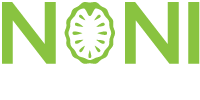Eur J Gastroenterology & Hepatology (2006), 18:575-577
Noni juice protects the liver
Claude J. Jensen, Johannes Westendorf, Mian-Ying Wang, David P. Wadsworth
This was a published correspondence to the journal editor refuting one of their recent published articles by Millonig et al. alleging acute hepatitis from a patient’s consumption of noni juice. Jensen et al. pointed out that there is substantial published data which shows that noni juice actually protects the liver from damage by liver toxic substances. Further, the authors discuss several problems with the article by the Millonig group: 1) no re-exposure test was conducted to confirm the observed toxicity results, 2) the article incorrectly cited support for the patient’s elevated liver enzymes from an earlier published article, which in fact contains research that shows pre-exposure to noni fruit juice protects the liver of experimental rats, 3) the Millonig group postulated that anthraquinones in the juice may have produced the liver toxicity. However, published reports confirm that anthraquinones are not present in the juice. Also, the absence of anthraquinones in Tahitian Noni® Juice was a prerequisite for the European Union’s 2003 approval of noni as a novel food, 4) the Austrian Agency for Health and Nutrition Safety conducted an independent analysis of Tahitian Noni® Juice with the conclusion, “the above described product has no toxic effects on the liver”, and 5) a trial was conducted with 96 human volunteers who consumed up to 750 ml of Tahitian Noni Juice per day for 6 weeks. Blood chemistry analyses, including liver enzymes, showed no abnormalities. In the reply by Millonig to this article, she admits that no proof of causality could be established.

